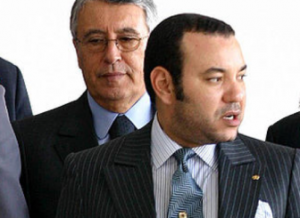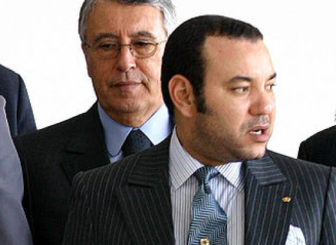 On August 20, Morocco celebrated the 60th anniversary of the Revolution of the King and the People together with the King’s birthday.
On August 20, Morocco celebrated the 60th anniversary of the Revolution of the King and the People together with the King’s birthday.
On this occasion, King Mohammed gave a very powerful speech where he criticized the current Moroccan government’s failed policy to develop an educational strategy that will enable young Moroccans to integrate successfully the world society of knowledge and thus become well educated citizens that will contribute efficiently to the development of their own nation in various fields.
The King said “The education sector is facing many difficulties and problems. They are mostly due to the adoption of some syllabi and curricula that do not tally with the requirements of the job market,”. He added “Another reason has to do with the disruptions caused by changing the language of instruction from Arabic, at the primary and secondary levels, to some foreign languages, for the teaching of scientific and technical subjects in higher education. Accordingly, students must be provided with the necessary linguistic skills so that they may fully benefit from training courses,”.
The King hailed the excellent results achieved in the fields of vocational, handicraft and technical training. “Specialized two to four-year training courses are available in these areas, both to baccalaureate and non-baccalaureate holders, and those who graduate from these courses have more opportunities to find a job directly and quickly and start a professional career,” he said. However, the King focused on the fact that Moroccan education decision makers should focus on the future, not just the present: Many of today’s job titles, and the skills needed to fill them, simply did not exist 20 years ago. Education systems need to consider what skills today’s students will need in future and teach accordingly. “Educational institutions which provide such courses should not be factories that produce unemployable graduates, particularly in certain obsolete subjects,” He added that “Moroccans should be encouraged to master foreign languages, expand their knowledge base, refine their skills and gain the competence needed to be able to work in Morocco’s new professions and areas of employment where there is a significant shortage of skilled workers.”
King Mohammed VI also called on the government to pay further attention to vocational training and to the rehabilitation of technical and manual work, which are becoming increasingly important in the Moroccan job market and “provide a major source of income as well as a means for the achievement of a dignified life.”
“Considering the current state of the education and training sector, we need to pause, assess achievements and pinpoint shortcomings and inadequacies.
“I wish to stress, in this respect, the importance of the National Charter for Education and Training, which was adopted through a broad-based national participatory approach.
“Successive governments have all worked on the implementation of this charter, particularly the last one, which deployed all the necessary means and resources to implement the Emergency Programme. However, it only engaged in this process during the last three years of its mandate,” he said.
“Unfortunately, the gains made since this programme’s implementation was started have not been consolidated. On the contrary, some of its basic components, namely aspects related to syllabus change, primary school curriculum and high schools of excellence, have been dropped, without consulting or coordinating with the parties concerned,” he stressed.
King Mohammed was very critical of the present government for not assuring a follow up of previous government’s positive policies to promote a better educational system.
“The current government should have capitalized on the positive experience gained in the field of education and training, especially as this is a crucial project that will span several decades,” he said. “It hardly makes sense for each government to come with a new plan every five years, and disregard previous programmes, particularly as no government will ever have the time, during a single mandate, to fully implement its project. The education sector should, therefore, not be included in the sphere of purely political matters, nor should its management be subjected to outbidding tactics or party politics. Rather, it should be part of a cultural, economic and social approach aimed at training and preparing human resources who can be incorporated into a dynamic development process, through an efficient education system,” he added.
He also expressed his concern to see many Moroccan families obliged to put their kids in foreign or private schools and pay high fees that usually go beyond their financial possibilities. “I am indeed sad to note that the state of education is worse now than it was twenty years ago,” he said. “As a result, and in spite of their limited resources, a large number of families are compelled to pay huge fees for their children to study in foreign schools or private education institutions in order to avoid the pitfalls of the state school and enrol their children in an efficient system,” he added. In fact, parents want their children to have a good education; pressure from them for change should not be seen as a sign of hostility but as an indication of something possibly amiss in provision.
Now and after this royal urgent call to improve the Moroccan educational system, Moroccan policymakers and school leaders should identify key factors that will immediately lead to successful educational outcomes and stay away from hollow politicized political debate that waste their time and energy and does not serve the Moroccans key interest to see a better educational system that will put their nation among countries that have the best school systems.
Eurasia Review







